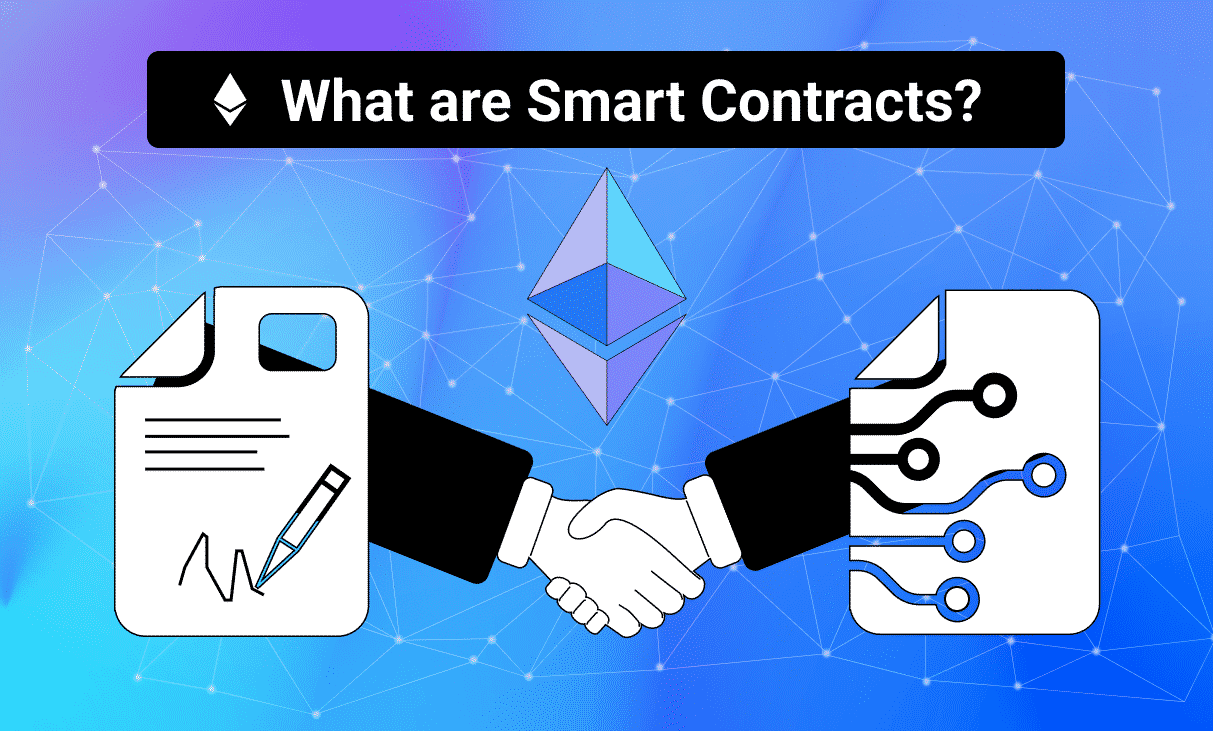Introduction
In the ever-evolving world of technology, smart contracts are becoming a buzzword that’s hard to ignore. They promise to revolutionize the way we conduct transactions and enforce agreements, leveraging the power of blockchain technology. But what are smart contracts, and how do they work? Let’s dive deep into the world of smart contracts and explore their potential.
What Are Smart Contracts?
Definition and Origin

What are Smart Contracts, to understand this first know their origin. A smart contract is essentially a self-executing contract where the terms of the agreement are directly written into lines of code, that are essential in the world of crypto. These contracts exist on a blockchain network, ensuring they are immutable and transparent. The concept was first proposed by Nick Szabo in the 1990s, long before blockchain became a household term. Szabo envisioned these contracts as a way to formalize and secure digital relationships far beyond traditional paper contracts.
What are Smart Contracts and their Importance in Blockchain Technology
What are Smart Contracts, to understand this first know their blockchain technology. Smart contracts are a fundamental aspect of blockchain technology. They allow decentralized applications (dApps) to function autonomously and securely. By eliminating the need for intermediaries, smart contracts streamline processes and reduce costs, making them a vital component of the blockchain ecosystem.
What are Smart Contracts and How Do Smart Contracts Work?

Basic Mechanism
In order to know what are smart contracts, one must know its basic mechanism. As, these are important to invest in the world of cryptocurrency. Smart contracts operate on an if-then logic. If a predefined condition is met, then the contract executes the corresponding action. This automated execution ensures that all parties adhere to the agreed terms without needing a middleman. For instance, if a smart contract stipulates that payment will be released once goods are delivered, the payment is automatically processed when delivery is confirmed.
Key Components
What are Smart Contracts, to understand this first know their key components. The core components of a smart contract include:
- Conditions: Specific criteria that trigger the execution of the contract.
- Decentralized Ledger: The blockchain that hosts the contract, ensuring transparency and immutability.
- Digital Signatures: Cryptographic keys that secure the identity of the parties involved.
Advantages of Smart Contracts After the Knowledge that What are Smart Contracts

What are Smart Contracts and their Efficiency and Speed
In order to understand what are smart contracts you should know their advantages first. Smart contracts execute transactions quickly and efficiently. Traditional contracts often involve lengthy processes and multiple intermediaries, but smart contracts cut through this red tape, enabling instant execution once conditions are met.
Security and Trust
What are Smart Contracts, to understand this first know their security. Because smart contracts are stored on a blockchain, they inherit the security features of the underlying technology. This makes them highly resistant to fraud and tampering. Additionally, the transparent nature of blockchain fosters trust among participants, as all actions are publicly verifiable. You can look forward to these advantages before diving into the knowledge that what are smart contracts.
Cost-Effectiveness
By eliminating intermediaries and reducing administrative overhead, smart contracts significantly lower transaction costs. This cost-saving potential makes them an attractive option for businesses and individuals alike. What are Smart Contracts, to understand this first know that they are cost-efficient.
Real-World Applications of Smart Contracts
Finance and Banking
If you that what are smart contracts, you can jump to their real world application. In finance, smart contracts can automate processes like loan disbursements, insurance claims, and trading. For example, decentralized finance (DeFi) platforms use smart contracts to facilitate peer-to-peer lending without traditional banks.
Supply Chain Management
Smart contracts enhance supply chain transparency by recording every step of the process on the blockchain. This enables real-time tracking of goods, ensuring authenticity and reducing fraud. What are Smart Contracts, to understand this first know their supply chain management.
Real Estate
In real estate, smart contracts can automate property transactions, from title transfers to rental agreements. This reduces the need for agents and speeds up the transaction process.
Healthcare
Healthcare can benefit from smart contracts by streamlining patient records, managing consent forms, and automating insurance claims, all while ensuring data security and privacy. What are Smart Contracts, to understand this first know that they are health beneficial.
What are Smart Contracts and their Challenges and Limitations
Technical Complexity
Once you understand that what are smart contracts you should learn their limitations. Smart contracts require a high level of technical expertise to develop and implement. Errors in the code can lead to significant issues, including financial losses.
Legal and Regulatory Issues
The legal status of smart contracts varies by jurisdiction. Regulatory uncertainty can pose a challenge, as existing laws may not adequately address the nuances of blockchain technology.
Scalability Concerns
Blockchain networks, particularly those that use proof-of-work consensus mechanisms, can face scalability issues. High transaction volumes may lead to slower processing times and increased costs.
Future of Smart Contracts
Innovations and Trends
Once you know that what are Smart Contracts you have to know their future. The future of smart contracts is promising, with ongoing innovations aimed at enhancing their functionality
Conclusion
Smart contracts represent a significant leap forward in how we manage agreements and transactions. Their ability to automate, secure, and streamline processes holds immense potential across various sectors. While challenges remain, ongoing advancements in technology and regulation are paving the way for broader adoption. Embracing smart contracts could unlock new efficiencies and innovations, making them a cornerstone of the digital future, that is why it is mendatory to understand what are smart contracts.
FAQs
Q1: What are the main benefits of using smart contracts?
Smart contracts offer efficiency, security, cost-effectiveness, and transparency, reducing the need for intermediaries and streamlining processes.
Q2: Can smart contracts be altered once deployed?
No, once deployed on the blockchain, smart contracts are immutable, meaning they cannot be changed or tampered with.
Q3: Are smart contracts legally binding?
The legal status of smart contracts varies by jurisdiction. Some regions recognize them as legally binding, while others are still developing regulations.
Q4: What industries can benefit the most from smart contracts?
Finance, supply chain management, real estate, and healthcare are among the industries that can significantly benefit from the adoption of smart contracts.
Q5: How do smart contracts handle disputes?
Smart contracts execute based on predefined conditions, minimizing disputes. However, if disputes arise, they may need to be resolved through traditional legal channels or arbitration.

